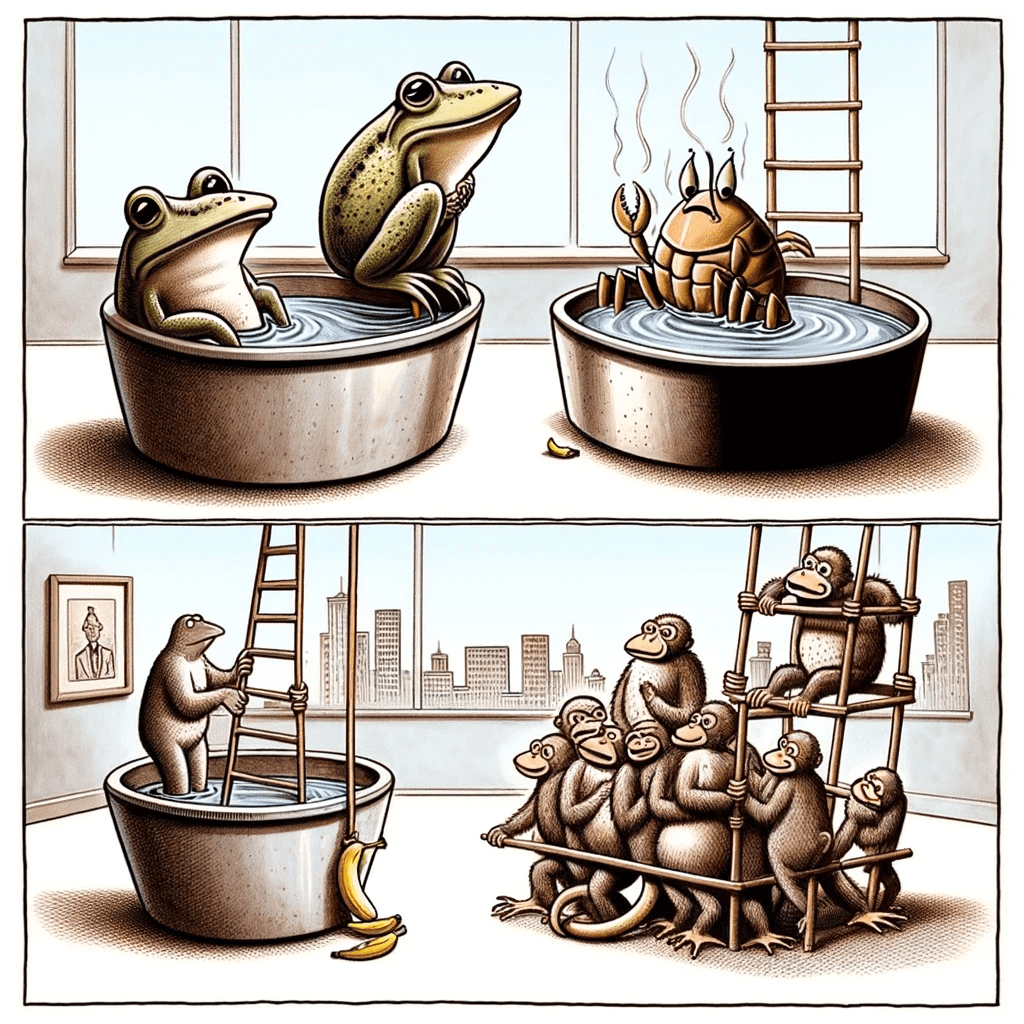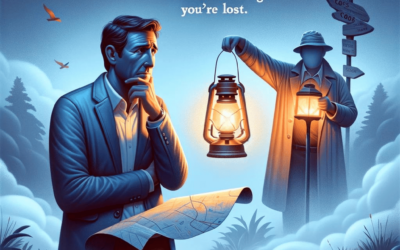Reflective Leadership: Lessons from the Fables About Leadership of the Frog, Crab, and Monkey
Fables actively convey profound truths through simple stories in the realm of leadership. These narratives often depict animals or situations in metaphorical contexts to illustrate key aspects of leadership and organizational behavior. They serve as mirrors, reflecting our own practices and prompting us to think critically about our actions and their impact on our teams and organizations.
Today, let’s explore three classic fables in leadership – The Frog, The Crab, and The Monkey. Each of these stories provides a unique lens through which we can examine our workplace dynamics, leadership styles, and the overall health of our organizational culture. As you read these fables, consider how they might relate to your own experiences and what lessons they hold for your journey as a leader.
Fables About Leadership: The Frog
lf you throw a frog into a boiling pot of water, the frog will fight for all of his life to get out. If, however, you put the frog into a pot of cold water then gradually increase the heat, the frog will adjust to his environment. Eventually, the warm water will zap him of his strength and when he finally figures that out he is too weak to fight.
Fables About Leadership: The Crab
Put a crab in a bucket and he’ll try to get a claw on the edge of the bucket and pull himself out. If you put two crabs in a bucket, however, they will fight against each other. Once one crab has secured a hold on the lip of the bucket, the other crab will pull the first crab back down. Neither crab will escape.
Fables About Leadership: The Monkey
Researchers put six monkeys into a cage with a ladder and a bunch of bananas at the topEvery time a monkey started to climb the ladder, the researchers sprayed all the monkeys with cold water. Eventually, the monkeys refused to climb the ladder. One monkey was removed and replaced with another monkey who had never undergone the cold water spray. When the new monkey tried to climb the ladder, the five original monkeys began to beat on him–thus keeping him from climbing the ladder. The original monkeys were conditioned–by the cold water spray–to not climb the ladder. All six original monkeys were eventually replaced by new monkeys that never experienced the cold water spray. Yet, the monkeys would not climb the ladder to get the bananas and would stop those that tried. They didn’t even know why. The group conditioned them to respond in a specific way.
Which Fable About Leadership Applies to Your Organization?
Employees not engaged, or worse, actively disengaged, are like the frog in the pot. They lose a sense of purpose. Negative employees that put others down are like the crabs in the bucket, making escape for themselves and others impossible. Management that passively condones specific behaviors are akin to the monkeys, reinforcing poor processes and suffering in production. They often say, “Because we’ve always done it this way.”
Delve deeply into your organization and actively discern how these fables of leadership apply. Are you cultivating an environment of growth and positive change, or are you entrenched in a cycle of passive acceptance and negative conditioning? If you found these insights thought-provoking and wish to delve deeper into transforming your leadership and organizational culture, consider exploring more with us. Engage with our content, join our conversations, and discover how you can make a meaningful difference in your organization.
Look deeply within your organization and ask how these fables apply to you. Schedule a meeting with a CO2 Coach. If you liked this fable, check out our others.
Follow the journey and gain more insights on Twitter: Twitter Profile




